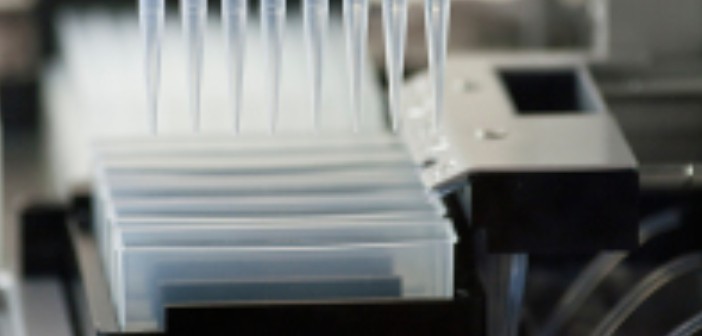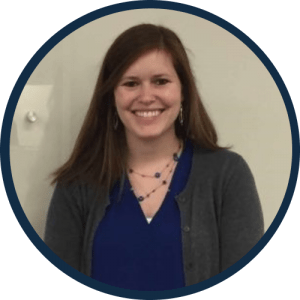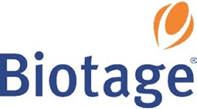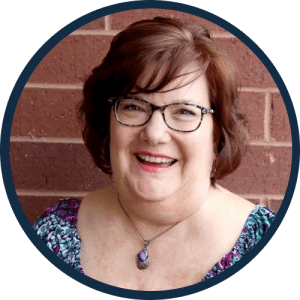Webinar series – current sample prep for bioanalytical laboratories: automation, small volume elution SPE and supported liquid extraction

Laboratories are often faced with developing sample prep procedures without a thorough understanding of the options available. The Biotage Smarter Sample Prep Learning Series explores the benefits and limitations of a variety of techniques and formats, using real assays commonly employed in the bioanalytical testing market.
Automation has never been more simple with the Extrahera™ GLP system. The first webinar in this series will explore how easily users can set-up and run sample prep methods while still having advanced features like audit tracking and networking. The second webinar focuses on the use of MIKRO extraction SPE plates to simplify your sample clean-up. The third part of the series shares new developments in supported liquid extraction applications for simplified sample prep in bioanalytical labs.
Many laboratories would like to incorporate automation into everyday use but current GLP requirements can make that difficult. New user-friendly software has been released for the Biotage® Extrahera™ featuring multi-level user access, audit tracking, networking and clog detection. This webinar details new GLP features and describes the ease of setup and everyday use.
What will you learn?
- How you can easily automate your sample prep steps
- How you can incorporate GLP features into your daily workflow
- How you can easily load sample information into your sample prep automation process
- How you can remotely view your extraction process and network data
- How you can secure your methods and results through multi-level access of the EXTRAHERA™ GLP software
Who may this interest?
- Scientists who want to learn about the latest technology for easy-to-use and affordable sample prep automation systems, with the goal of increasing throughput or consistency
- Laboratories that currently have or would like to invest in Biotage® Extrahera™
- Laboratories that are looking to incorporate GLP compliant instrumentation
Speaker
 Jillian Neifeld
Jillian Neifeld
Applications Chemist
Biotage (Charlotte, NC, USA)
Jillian Neifeld has a Master’s degree in Forensic Science from Virginia Commonwealth University (VA, USA). She previously worked for the Armed Forces Medical Examiner as an Analytical Toxicologist, as well as a Forensic Scientist for a county lab in California. She has been with Biotage for about 3 years.
Many laboratories are looking to reduce the sample size required for extraction and facilitate direct injection, minimizing steps and saving time in their LC-MS/MS assays. The new Biotage® MIKRO SPE products allow for elutions as low as 20uL. In this webinar, we will be discussing how the MIKRO SPE can be used by bioanalytical labs with a range of compounds and look at analytical results in terms of recovery and other common parameters.
What will you learn?
- Advantages of using a low volume elution extraction protocol for your assays
- How to reduce time and solvent use using microleution for smarter sample prep
Who
may this interest?
- Researchers interested in developing new methods in their laboratories
- Laboratory staff looking to reduce extraction time and elution volume
- Scientists that currently use microelution products in their laboratories
- Technologists working with small sample volumes
Speaker
Stephanie J. Marin PhD
Senior Applications Chemist
Biotage (Charlotte, NC, USA)
Stephanie J. Marin received her PhD in chemistry from Arizona State University (AZ, USA). She has expertise in sample preparation, liquid chromatography and mass spectrometry, and has over 10 years of experience developing and validating clinical assays from her tenure at the ARUP Institute for Clinical and Experimental Pathology (UT, USA). She has additional experience doing analytical work on polymers, adhesives, coatings, food packaging and other specialty chemicals. Dr Marin has worked in applications development and marketing for an HPLC instrument and column manufacturer and as a supervisor at an EPA certified lab. She is the author of over 30 peer reviewed publications and book chapters and over 100 abstracts presented at national meetings.
Supported liquid extraction is a fast, efficient, clean sample preparation method that is vastly underutilized. It can be used to extract a range of compounds from almost all matrix types. There is minimal method development required when using the ISOLUTE® SLE+, Biotage’s SLE product and extracts show minimal matrix effects with high recoveries. In this webinar, we will be discussing the mechanism behind how SLE works, as well as many applications that have employed the supported liquid extraction technique.
What will you learn?
- What is supported liquid extraction?
- How do you develop methods on the ISOLUTE® SLE+?
- Can SLE be used to extract acidic, basic and neutral analytes from different matrices?
- Tips and tricks for maximizing sample recoveries and cleanliness for a range of compounds using ISOLUTE® SLE+
Who may this interest?
- Those that need a simple way to minimize matrix effects in their LC-MS/MS assays
- Those developing new methods in their laboratories
- Those interested in extraction techniques other than SPE
- Those currently doing liquid-liquid extractions
Speaker
 Jillian Neifeld
Jillian Neifeld
Applications Chemist
Biotage (Charlotte, NC, USA)
Jillian Neifeld has a Master’s degree in Forensic Science from Virginia Commonwealth University (VA, USA). She previously worked for the Armed Forces Medical Examiner as an Analytical Toxicologist, as well as a forensic scientist for a county lab in California. She has been with Biotage for about 3 years.
In association with


